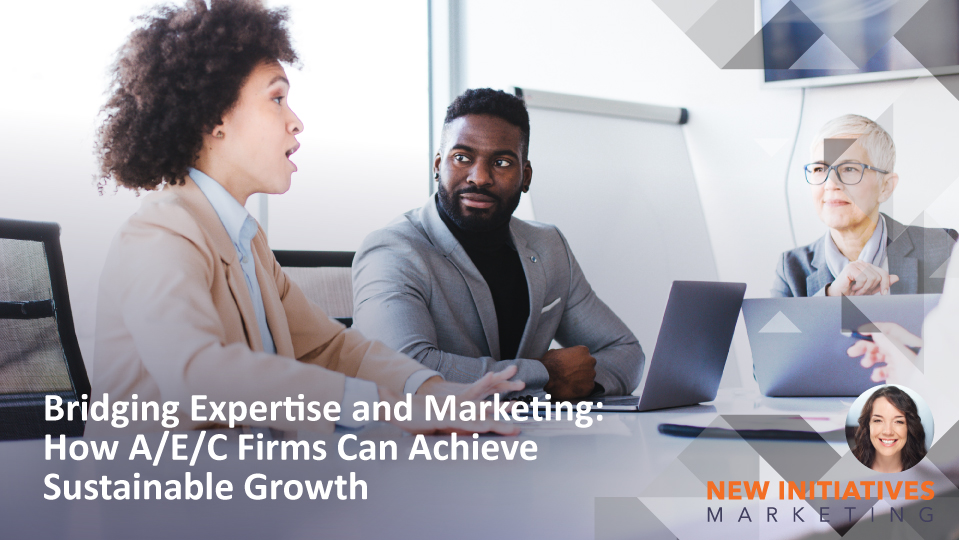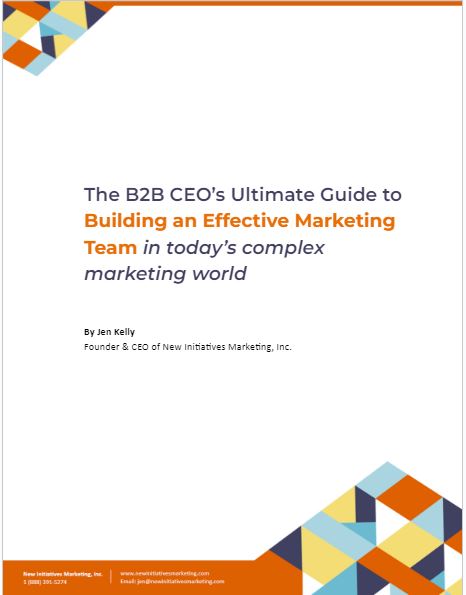As the owner or leader of a consulting engineering firm, your primary concerns for growing the company may revolve around several key areas.
The competitive landscape continues to evolve with new players entering the market and established firms are often expanding their offerings. Client expectations are also shifting, with an increasing demand for innovative, cost-effective solutions delivered on tighter timelines. Additionally, macroeconomic uncertainties and fluctuating regulations in the A/E/C industries create complexities that require careful planning and adaptability.
Below are major concerns we’re hearing and we’ve paired them with suggested solutions to solve those concerns.
Consulting Engineering Firm Growth Concerns
Talent Acquisition and Retention:
The competition for skilled engineers is fierce, particularly those with niche expertise. Attracting and retaining top talent to support growth and deliver high-quality services is a top priority.
Through employer branding strategies, marketing can support talent acquisition by highlighting the firm’s culture, values, and unique opportunities.
Solution: Leverage LinkedIn, Glassdoor, and careers sections on your website to showcase employee testimonials, career progression stories, and your firm’s impact on industry projects.
Example: Arup’s employer branding campaigns emphasize their innovative projects and global presence to attract top talent (Arup)
Market Differentiation:
Many engineering firms offer similar services, so distinguishing your firm from competitors is critical. Identifying unique value propositions and ensuring they resonate with potential clients remains a challenge.
Effective marketing highlights your niche expertise and unique solutions through thought leadership.
Solution: Publish case studies, white papers, and blogs demonstrating your firm’s successful projects and expertise. Use these to build authority and trust. Do this consistently, it is not a “one-off” effort that will pay off.
Example: WSP’s insights platform offers content showcasing their innovation and problem-solving capabilities (WSP).
Adapting to Industry Trends:
The industry is rapidly evolving with technological advancements, sustainability mandates, and new regulations. Staying ahead requires investment in continuous learning and innovative solutions.
Marketing can position your firm as a forward-thinking leader by addressing current trends in your communication.
Solution: Regularly update content to include emerging topics like sustainability, AI in engineering, or new regulations. Host webinars or attend industry events to highlight your adaptability and to keep informed.
Example: Golder Associates’ focus on environmental sustainability in their marketing aligns with industry shifts (Golder).
Scalability of Your Consulting Engineering Firm’s Operations:
Growth often demands more robust processes, technology, and infrastructure. Scaling without compromising the quality of service is a complex balancing act.
Marketing tools can streamline lead generation and client management, enabling efficient growth.
Solution: Use CRM platforms like HubSpot to manage client relationships and automate outreach. Develop scalable marketing strategies like targeted email campaigns that run consistently.
Reference: HubSpot’s guide to scaling operations through marketing automation (HubSpot).
Client Acquisition:
Expanding into new markets or industries while maintaining strong relationships with existing clients requires both strategic planning and investment.
Targeted marketing identifies and engages new clients while nurturing existing relationships.
Solution: Develop segmented campaigns using LinkedIn Ads and Google Ads targeting industries or regions you aim to expand into. Only do this after you have a robust content program and a website that is technically capable of collecting client inquiries from the ad campaigns.
Example: Jacobs Engineering successfully used industry-specific campaigns to attract clients in diverse markets (Jacobs).
Top Marketing Concerns
What is the ROI of our Marketing Efforts?
As an engineering firm, you are most likely cautious about allocating budgets to areas that don’t directly show measurable returns. Proving the ROI of marketing initiatives is essential.
Marketing can demonstrate ROI through tracking metrics like lead generation numbers, website traffic, and client conversions.
Solution: Implement analytics tools like Google Analytics and marketing dashboards to track campaign performance. Share regular reports linking marketing efforts to project wins. Be certain you ask the questions that will help your firm achieve its goals – and make those the metrics you track. Without prior thinking diving into the analytics will only show you a tsunami of data that may distract you from your goals.
Reference: “Measuring Marketing ROI for Professional Services Firms” by Hinge Marketing (Hinge Marketing).
Limited Marketing Knowledge:
Engineering expertise does not necessarily translate into marketing expertise. Understanding how marketing strategies align with firm goals can be a gap.
A structured onboarding process and regular updates can bridge knowledge gaps of how marketing is more than just logos on the coffee cups, but can be a strategic driver of your firm’s success.
Solution: Provide workshops for your team on marketing basics or partner with a fractional CMO experienced in working with firms new to having professional marketing support.
Example: Hinge Marketing’s training programs for engineering firms (Hinge Marketing).
Message Alignment with Technical Expertise:
Marketing must convey your firm’s technical capabilities and reputation in a way that resonates with your target audience without oversimplifying or losing credibility.
Authentic marketing must align with the technical depth of your firm’s expertise.
Solution: Collaborate with engineers to develop content and focus on communicating solutions to client challenges rather than just technical specs.
Example: Stantec’s project narratives focus on solving client problems while demonstrating technical skills.(Stantec).
Market Visibility:
While you have built a solid reputation in your current market, expanding into new regions or sectors requires significant effort to establish credibility and visibility.
Expand your presence through industry partnerships, PR, and digital platforms.
Solution: Invest in digital ads for visibility in new markets, and co-author articles with industry publications to establish credibility. Understand that this work needs to be done consistently, it is not a one-off thing.
Example: HDR partners with leading journals to increase their visibility (HDR).
Competition for Attention:
Larger firms with bigger budgets often dominate digital spaces and client conversations. Finding cost-effective ways to compete against them is a challenge.
Smaller firms can compete by focusing on highly targeted and cost-effective strategies and by executing them consistently.
Solution: Leverage local SEO, niche industry forums, and direct email outreach to targeted decision-makers.
Reference: Moz’s guide to local SEO for small businesses (Moz).
The Content Creation Burden:
Producing meaningful content, such as white papers or case studies, often requires input from senior engineers who are already stretched thin with client work.
Offload content creation to marketing specialists who can collaborate with engineers to produce accurate and insightful materials.
Solution: Engage external writers with industry experience to draft white papers and blogs, with final reviews by your team.
Example: Marketing consultants often provide tailored content services for firms like yours (Hinge Marketing).
Balancing Digital and Traditional Marketing:
Determining the right mix of traditional relationship-based approaches (RFP responses, networking) and digital strategies (SEO, LinkedIn, email campaigns) is not always straightforward.
An integrated strategy blending online and offline initiatives ensures neither approach is neglected.
Solution: Use digital marketing to generate leads and traditional methods like events to nurture relationships.
Example: SMPS provides frameworks for integrating traditional and digital marketing (SMPS).
By addressing these concerns through tailored strategies and proven industry practices, your consulting engineering firm can achieve sustainable growth while maximizing marketing’s potential to support your business objectives.
Jen Kelly leads New Initiatives Marketing, Inc., a Fractional CMO & Expert B2B Marketing Team company. Since 2009, our team of senior marketing leaders and expert marketing specialists has been helping B2B CEOs with the strategic leadership and real-world marketing execution needed for practical, long-term results.


